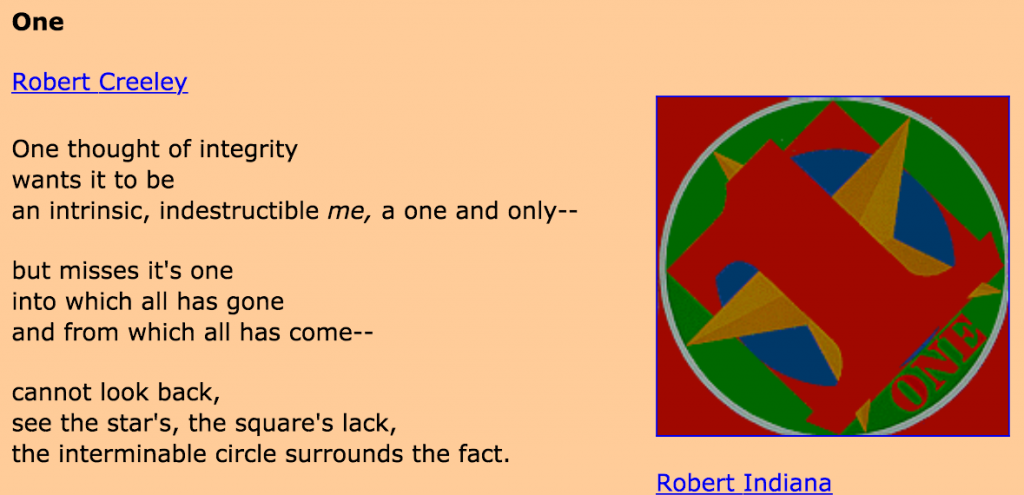Some years ago, being with a camping party in the mountains, I returned from a solitary ramble to find everyone engaged in a ferocious metaphysical dispute, The corpus of the dispute was a squirrel -a live squirrel supposed to be clinging to one side of a tree-trunk; while over against the tree’s opposite side a human being was imagined to stand. This human witness tries to get sight of the squirrel by moving rapidly round the tree, but no matter how fast he goes, the squirrel moves as fast in the opposite direction, and always keeps the tree between himself and the man, so that never a glimpse of him is caught. The resultant metaphysical problem now is this: Does the man go round the squirrel or not? He goes round the tree, sure enough, and the squirrel is on the tree; but does he go round the squirrel?
In the unlimited leisure of the wilderness, discussion had been worn threadbare. Everyone had taken sides, and was obstinate; and the numbers on both sides were even. Each side, when I appeared, therefore appealed to me to make it a majority. Mindful of the scholastic adage that whenever you meet a contradiction you must make a distinction, I immediately sought and found one, as follows: “Which party is right,” I said, “depends on what you practically mean by ‘going round’ the squirrel. If you mean passing from the north of him to the east, then to the south, then to the west, and then to the north of him again, obviously the man does go round him, for he occupies these successive positions. But if on the contrary you mean being first in front of him, then on the right of him then behind him, then on his left, and finally in front again, it is quite as obvious that the man fails to go round him, for by the compensating movements the squirrel makes, he keeps his belly turned towards the man all the time, and his back turned away. Make the distinction, and there is no occasion for any farther dispute. You are both right and both wrong according as you conceive the verb ‘to go round’ in one practical fashion or the other.”
William James, excerpt from What Pragmatism Means, hat tip to the Mead Project
The really vital question for us all is, What is this world going to be? What is life eventually to make of itself? [src]
Our intelligence cannot wall itself up alive, like a pupa in its chrysalis. It must at any cost keep on speaking terms with the universe that engendered it. William James
I. Radical Empiricism – William James
I give the name of radical empiricism to my Weltanschauung. Empiricism is known as the opposite of rationalism. Rationalism tends to emphasize universals and to make wholes prior to parts in the order of logic as well as in that of being. Empiricism, on the contrary, lays the explanatory stress upon the part, the element, the individual, and treats the whole as a collection and the universal as an abstraction. My description of things, accordingly, starts with the parts and makes of the whole a being of the second order. It is essentially a mosaic philosophy, a philosophy of plural facts, like that of Hume and his descendants, who refer these facts neither to Substances in which they inhere nor to an Absolute Mind that creates them as its objects. But it differs from the Humian type of empiricism in one particular which makes me add the epithet radical.
To be radical, an empiricism must neither admit into its constructions any element that is not directly experienced, nor exclude from them any element that is directly experienced. For such a philosophy, the relations that connect experiences must themselves be experienced relations, and any kind of relation experienced must be accounted as real as anything else in the system. Elements may indeed be redistributed, the original placing of things getting corrected, but a real place must be found for every kind of thing experienced, whether term or relation, in the final philosophic arrangement.
Now, ordinary empiricism, in spite of the fact that conjunctive and disjunctive relations present themselves as being fully co-ordinate parts of experience, has always shown a tendency to do away with the connections of things, and to insist most on the disjunctions. Berkeley’s nominalism, Hume’s statement that whatever things we distinguish are as loose and separate as if they had no manner of connection. James Mill’s denial that similars have anything really in common, the resolution of the causal tie into habitual sequence, John Mill’s account of both physical things and selves as composed of discontinuous possibilities, and the general pulverization of all Experience by association and the mind-dust theory, are examples of what I mean.
The natural result of such a world-picture has been the efforts of rationalism to correct its incoherencies by the addition of trans- experiential agents of unification, substances, intellectual categories and powers, or Selves; whereas, if empiricism had only been radical and taken everything that comes without disfavor, conjunction as well as separation, each at its face value, the results would have called for no such artificial correction. Radical empiricism, as I understand it, does full justice to conjunctive relations, without, however, treating them as rationalism always tends to treat them, as being true in some supernal way, as if the unity of things and their variety belonged to different orders of truth and vitality altogether.
Pluralism, Pragmatism, and Instrumental Truth – William James
James’s Application of Peirce (N.W. Williams)



